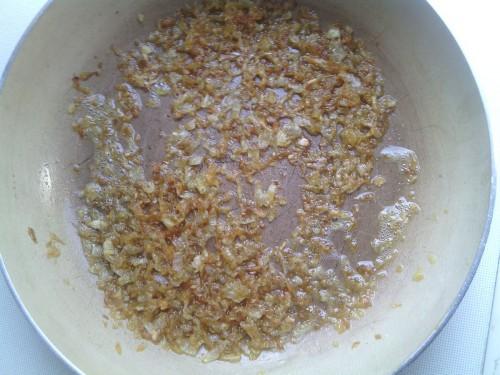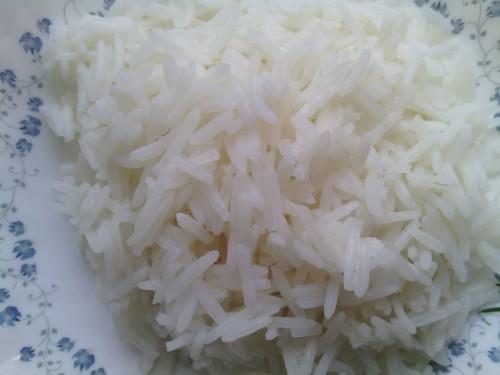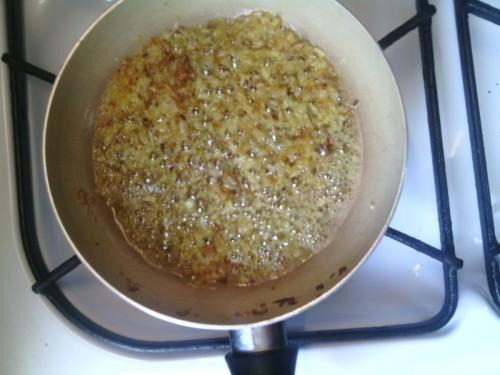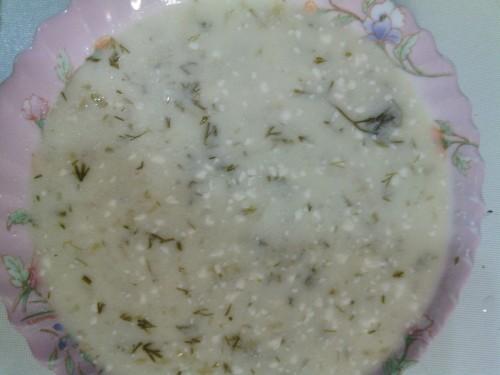The content of the article
Today I am insolent. Swung on our everything - A.S. Pushkin. This is the fault of the picturesque passage from "Travel to Arzrum", which I found in a Georgian textbook on the Russian language. Yes, they study our classic here. Agree, nice?
So, Pushkin, traveling around the Caucasus, visited Tbilisi. His intelligent humor, sarcasm, as well as his detailed and analytical manner of describing reality, so vividly paint old Tiflis’s paintings that, as I read, I asked myself the question: “How is it now?” So the idea arose of comparing the two epochs, moreover, separated by the twentieth century.
I urge zealous Pushkinists to bypass these notes. There is no analysis, no attempt to rethink what was written by a genius.
Pretty Georgia
"The instant transition from the formidable Caucasus to pretty Georgia is delightful." Such is the mood of Pushkin at the beginning. He admires nature and the green mountains. Russian tourists now also upon arrival celebrate the incredible beauty of the mountains and hills covered with shaggy forests. A large number of rivers and lakes contributes to the lush growth of vegetation. And the air is so soft and pleasant that there is no better epithet for Georgia as “pretty”.
Pushkin was impatient in travel and often went on foot without waiting for the change of horses in the tavern, then the wagon caught up with him. In Georgia, he had to go through quite a lot alone. And once, in the night, he barely made it to some village. The first guide who came across asked him for an abaz - a silver coin. He was taken to the mayor. Here is how the author writes "... The room was reserved for me, a glass of wine was brought, and the abaz was given to my guide with a paternal reprimand for his greed, insulting to Georgian hospitality."
In fact, Georgians are very proud of their hospitality. The guest is the messenger of God. It's like that. Many will share with you the last piece of bread. But ... sometimes in remote villages, cunning Georgians can raise the price ten times higher than that. The smell of profit on a hungry belly has a negative effect.
About education
Before reaching the capital, Pushkin noticed a lot. For example: “Water pipes proved the presence of education. One of them struck me with the perfection of optical illusion: water seems to have its course along the mountain from the bottom up. ” However, today, in the 21st century, the picture away from the capital civilization is so sad that even Pushkin would be surprised. In many settlements there is no water supply, no water, no gas. Poverty is such that offends the eye with its rudeness.
About villages in the mountains - nothing to say at all. There, the road to the world is open only two or three months a year, the rest of the time they are covered with snow. Survive in difficult conditions, close to combat.
In winter, in order to save on firewood (and in the capital - on gas), many sleep in what they wear during the day. In sweaters, jackets and pants. Moreover, acquired in Soviet times.

Monument to A. S. Pushkin in Tbilisi. Bronze bust. It was established on June 6 (according to the new style) in 1892, on the day of the 93rd anniversary of the poet. Sculptor F. Khodorovich.
About Tiflis
Now about the capital. That's how the Russian writer saw her. “The city seemed to me crowded. Asian buildings and the bazaar reminded me of Chisinau. Along narrow and curved streets, donkeys ran with crates; oxen-drawn carts blocked the road. "Armenians, Georgians, Circassians, Persians crowded in the wrong square ..."
Tbilisi in the 21st century is also lively. And eclecticism in architecture is a reflection of the long coexistence of multinational cultures.The area where the center of old Tiflis used to be, I previously described. Now it is a historical and cultural value. Amazing place: old buildings with wonderful Georgian carved balconies. Very similar to a huge mycelium - gingerbread houses seem to grow on top of each other. Nearby are still adjacent Christian and Gregorian churches, the Jewish synagogue and Muslim mosque.
Tbilisi is now multinational. In many modern metropolitan bazaars and markets, different nations trade side by side, as in the middle of the 19th century.
I only note that foreigners used to come here mainly to the bazaar, but now in order to enjoy the wonderful nature, see historical monuments and enjoy the achievements and features of Georgian culture: painting, poetry, music, theater, architecture and spirituality.
About baths
Pushkin, going into the famous sulfur baths, saw a crowd of undressing women: “Let's go, let's go,” the owner told me, “today is Tuesday: Women's Day. Nothing, it’s not a problem. ” “Of course it does not matter,” I answered him, “on the contrary.” The appearance of men made no impression. They continued to laugh and talk among themselves. Not one hurried to be covered with her own veil; not one stopped undressing. I seemed to enter invisible. Many of them were really beautiful ... "
Now, of course, there are departments in the baths - male and female. There are also separate cabins at an increased price. But comfort, privacy and a private pool with hot sulfuric water.
And already no traveler will see the naked washing townspeople. I have already mentioned the beauty of Georgian women. And today, in our century, they are still bright, fresh and beautiful. And the veils do not wear.
By the way, the Russian classic also lets the hairpin: “But I don’t know anything more disgusting than Georgian old women: they are witches.” I got the impression that the local men are also afraid of local grandmothers. Some call them crows. For black clothes. And not only.
What are our old women? God’s dandelions, well, they like to quietly gossip on the bench, gossip and lament in the lines. And here the grandmothers are smoking with might and main, talking loudly, noisily, dynamically waving their hands. At the bazaar they can mess up. And generally behave assertively. So, from that far time, little has changed in the character of Georgian old women. I’m afraid, therefore, I made friends with my neighbors.
About the kitchen
But the next position described by Alexander Sergeyevich has completely changed. “We went to a German colony and dined there. They drank the beer they made there, it tasted very unpleasant, and they paid very dearly for a very bad lunch. In my tavern they fed me just as expensively and badly. Damn the Tiflis deli! ”
Now Tbilisi is tasty everywhere, even in the cheapest eateries. And if it's a restaurant, they even bake bread there. In some places, lemonade and spirits are also made or made to order. Even with the emblems of the institution on the labels. Many restaurants have their own territory with a kindergarten, courtyard and summer booths or tables on the veranda.
The food is delicious. Already at the entrance, the mouth is filled with saliva, and the eyes flash like a primitive person at the sight of game. They cook almost everywhere in national Georgian ovens, which gives the dishes a special local inimitable taste.
So you went to a restaurant in Tbilisi. Everything. Think until you can. You live only by the senses. One passion reigns here - gluttony. The smell of dry logs or vines engulfed in fire warms up the mood and kindles the impatience of visitors.
Around already eat! And you seem to live every feast. And inhale. The aroma of grilled kebab or kebab. A smoking pot with lobio or a huge tray with khinkali. The sharpest kharcho or burning chakhokhbili. A hot pan with mushrooms baked with suluguni. Mamalyga stuffed with cheese. And to her nibbles. And many many others. Long live the Tbilisi grocery store in our century!
About wine
“Georgians do not drink our way and are surprisingly strong. Their faults cannot be taken out and will soon deteriorate, but they are beautiful on the spot. ”- this is how Pushkin writes. Of course, refrigerators have spoken their word in progress. But Georgian home wines cannot be preserved for a long time now. He brought wine to Russia, opened a bottle - then drink everything quickly, do not stretch for weeks. Otherwise, it will ferment, turn sour and lose all taste. And here almost everyone has their own wine. Each has its own technology, its own chip, which makes the wine not like the others. And to be honest, everyone during the feast praises exactly his screw. To hoarseness, tricks and abuse.
By the way, on large feasts, where there will be several changes of dishes, the richest and most refined, a curiosity can happen. If there is an unsuccessful wine, they will certainly say: “The table is bad - the wine is not good!” By the way, Georgians still drink in huge quantities: beer, wine, and incredibly strong, biting chacha. Moreover, in fact, Georgians are endowed with good health, if they withstand such abundant libations. As before.
About money
And here is the perplexity of the Russian classic: “... Having crossed a street in a cab through two streets and letting him go in half an hour, I had to pay two rubles in silver. At first I thought that he wanted to take advantage of the newcomer’s ignorance; but they told me that the price is exactly the same ... "
In fact, at that time you could buy a pig for two rubles in silver in Tbilisi. Five, a cow. The cabmen took a little expensive.
Now the opposite. Prices for trips around the city are low. I believe that the point is as follows. Any and everyone can become a taxi driver here. To do this, just attach the checkers to the roof of the car. And that’s all. No licenses, no checks, no liability. Dangerously. But cheap. You can get from one end of the city to the other in 10-15 GEL. (This is approximately 300-450 rubles.)
But Tbilisi is not small. A trip around the city costs about 3 to 8 GEL (90-240 rubles), to the airport - 20 (600 rubles). I advise the Russians to behave more impudently. Reassure the driver that you know the terrain and prices. Otherwise, circle around the finger. Georgian taxi drivers at the cellular level feel the confusion of tourists. This is what they live for.
Scorched Georgia
Here's how Alexander Sergeyevich says goodbye to Georgia: “I was riding, changing horses at Cossack posts. Around me, the earth was scorched by heat. From a distance, Georgian villages seemed to me beautiful gardens, but, approaching them, I saw several poor huskies, overshadowed by dusty poplars. The sun was setting, but the air was still stuffy ... "
These lines are, in all probability, eternal. Nothing has changed. Cracked earth from thirst. The red-hot ball of the sun is ruthless. Stuffy up to the night. And the impoverished, dilapidated, as if after the pogrom houses of rural residents evoke anguish and disgust. The outskirts, outbacks of Georgia and in the present century, when considered, are sad and joyless.
About people
And yet I do not want to end in minor. I found an interesting remark in Pushkin's notes. May today it support many good people living in this ancient, mysterious and such controversial country.
“Georgians are a warlike people. They have proved their courage under our banners. Their mental abilities expect more education. They are generally more cheerful and sociable. ”
The true truth. I agree with this and strongly attach myself to the words of the great author. Despite many difficulties and upheavals of recent decades, Georgians have not lost their charisma and have not parted with their traditions. They were able to preserve the best that has always distinguished their nation: courage, courage, emotionality, friendliness and responsiveness.
Well, so that it would be very pleasant for you to imagine Georgia, my friend Alena shares recipes for her delicious dishes.
Chicken in mayonnaise sauce from Alena Vatiashvili
To cook chicken we need:
- 1 chicken per 1.5 kg;
- 1 onion;
- sunlit spices 1 tsp each: dry cilantro, red flower, and uchi-suneli;
- 200 g mayonnaise;
- 3 cloves of garlic;
- salt, pepper to taste;
- 100 ml of boiled chilled water.
And proceed to cooking. Cut the chicken into pieces, wash, dry, salt and pepper. Fry on all sides until cooked.
Finely chop the onion, pass until golden brown in butter or sunflower oil.
Next, spread mayonnaise in a wide bowl. Add all the suneli.Squeeze the garlic, put the fried onions and mix. Pour boiled water and mix well again.
Dip each piece of fried chicken in mayonnaise sauce and put in a bowl.
Cover with a lid and leave for half an hour to soak the meat. And serve to the table!
Yogurt soup (kefir)
For cooking, we need:
- 500 ml of yogurt or kefir;
- 100 g of rice;
- 1 onion;
- 1 liter of water;
- 1 egg
- dill;
- salt to taste.
Boil rice.
Passion the onion over low heat with butter until golden brown.
Pour yogurt or kefir into a pan, add water and an egg.
All mix well. We send fried onions there and put on fire. We constantly stir!
As it boils, add boiled rice, salt to taste. At the end, sprinkle with finely chopped dill. We boil for 7 minutes and the light soup is ready!
- Gemrielad is mivert! - Enjoy your meal!









